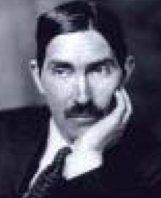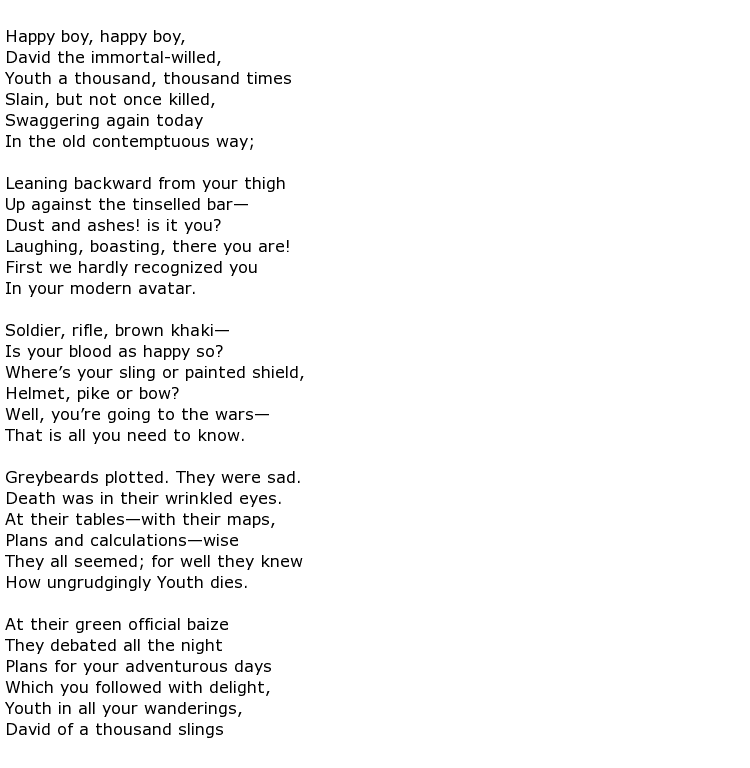 Harold Monro was a Belgium-born English poet. Although he wrote poems about the First World War, and particularly about men that he knew involved in it, he could not be described as a “war poet” as such. Besides writing his own work he opened the Poetry Bookshop in London, in 1913, and, over the next twenty years, this became an establishment that brought many up and coming poets to the attention of the reading public.
Harold Monro was a Belgium-born English poet. Although he wrote poems about the First World War, and particularly about men that he knew involved in it, he could not be described as a “war poet” as such. Besides writing his own work he opened the Poetry Bookshop in London, in 1913, and, over the next twenty years, this became an establishment that brought many up and coming poets to the attention of the reading public.
He was born Harold Edward Monro on the 14th March 1879 in the Belgian capital Brussels. His father Edward, born in London, died when Harold was only nine years old and many believe that this event influenced his future writing career. He had a comfortable upbringing and was sent to Radley College for his early education before going on to Caius College, Cambridge. At the age of 27 he had his first collection of poetry published and, by this time, he was editing the influential literary magazine The Poetry Review.
From 1913 he enjoyed a modicum of success with his poetry bookshop on Devonshire Street, Bloomsbury. He published more work at his own expense, occasionally making a profit from his endeavours. This was a place for casual browsers and readers, and where new poets could go for inspiration and encouragement. There were rooms above the shop which were let out on short term leases to writers such as Wilfrid Wilson Gibson, one of the so-called “Georgian Poets”. Monro would later collaborate with Edward Marsh on the Georgian Poetry series, a five-book anthology of poems written during the reign of King George V, covering the years 1911 to 1922.
Monro was 35 years old when war broke out and there is no record of any period of military service. He became well known for a quartet of war poems called Youth in Arms, work that was produced during the early stages of the war. Literary critics have suggested that the author was a pioneer in envisaging the

and that he understood

One of the poems in this small collection was dedicated to his good friend Basil Watt who lost his life at the Battle of Loos. This moving poem was called Lament in 1915 and was written using modern language. It is reproduced here:

During the post-war years Monro continued writing and publishing work from his shop but it was not always commercially successful. Critics have identified some of it from this time as his best work though and it seemed that his driving ambition was to find some kind of “cultural middle ground” between poetry written by the Georgians and that of the new “modernism” style. It is believed that he was influenced by his wife Alida who he had met in 1913 and who was, herself passionately interested in poetry.
During the 1920s though he became disillusioned by the sorry state of Europe and had begun to lose faith in his bookshop enterprise, disappointed that many budding writers who he had helped now had no time for him. His publishing ventures had made a serious dent in his finances and he began to drink excessively to forget his troubles. This will, no doubt, have affected his health and he contracted a fatal dose of tuberculosis.
Harold Monro was confined to a nursing home in Kent and died on the 16th March 1932 at the age of 53. He was cremated in Golders Green, London three days later.

